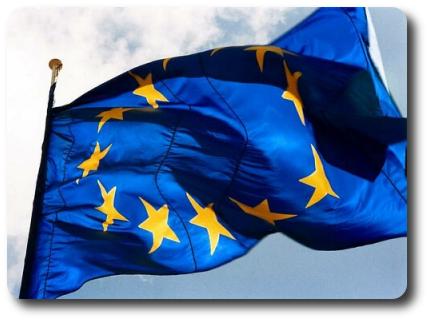EU Ends Microsoft Antitrust Probe; Hello Browsers!
The European Union hasn't been looking too kindly on Microsoft and its supposed anticompetitive acts in bundling Internet Explorer in with Windows. But today, the European Commission has settled its dispute with Microsoft after the world's largest software maker agreed to implement changes in how its Windows OS integrates the browser.
The European Commission today announced that it adopted a decision that renders legally binding commitments offered by Microsoft to boost competition on the web browser market starting March 2010.
The accepted decision, of course, is that Microsoft will provide a "choice screen" where Windows users will be able to pick between Opera, Chrome, Safari, Firefox, AOL, Maxthon, K-Meleon, Flock, Avant Browser, Sleipnir, Slim Browser and Internet Explorer. As many of Microsoft's competitors requested, the choice screen will feature browsers in a randomized order.
European Competition Commissioner Neelie Kroes said: "Millions of European consumers will benefit from this decision by having a free choice about which web browser they use. Such choice will not only serve to improve people's experience of the internet now but also act as an incentive for web browser companies to innovate and offer people better browsers in the future."
Under the commitments approved by the Commission, Microsoft will make available for five years in the European Economic Area (through the Windows Update mechanism) a choice screen enabling users of Windows XP, Windows Vista and Windows 7 to choose which web browsers they want to install in addition to, or instead of, Microsoft's browser Internet Explorer. The commitments also provide that computer manufacturers will be able to install competing web browsers, set those as default and turn Internet Explorer off.
A clause in the commitments allows the European Commission to review the commitments in two years. Microsoft will report regularly to the Commission, starting in six months' time, on the implementation of the commitments and under certain conditions make adjustments to the choice screen upon the Commission's request.
If Microsoft were to break its commitments, the European Commission could impose a fine of up to 10 percent of Microsoft's total annual turnover without having to prove any violation of EU antitrust rules.
Get Tom's Hardware's best news and in-depth reviews, straight to your inbox.
-
noodlegts That's a big load of crap. Could you imagine going to Ford and having to look at a choice screen that also showed you Toyota, Honda, and GM vehicles?Reply
Anti-trust is one thing, but forcing a company to pitch other companies' products to you is over the line. Enough of this EU socialist crap. -
PraxGTI I still don't get it....freedom of choice is as easy as downloading and installing the browser you want...I think Europeans must be too mentally chanllenged to be able to click the "next" button on an installer and must have it through a "choice screen" which is more like a "mentally challenged computer user screen". Way to go EU, you just supported people becoming even more challenged in the ways of the computer. Next they will say that you need to have a screen that pops up to select what the person wants for breakfast because they don't know how to use a grill and toaster...what is the world coming to?Reply -
rhino13 Yeah-- Intel, Microsoft, Sun, Etc. Take note the cost of doing business in the EU is unreasonbly high, plus you're gonna get sued like every other year and lose more than you already have doing business in the EU.Reply
How much longer is it worth staying in the EU? -
logitic You have to admit that this is to funny.Reply
"If Microsoft were to break its commitments, the European Commission could impose a fine of up to 10 percent of Microsoft's total annual turnover without having to prove any violation of EU antitrust rules."
That alone made me have to say nice work. Only in EU this is possible! -
noob2222 Next thing you know, MS will be paying for each browser installed on thier OS aside from IE.Reply
MS pays 5M to google for 500,000 users installing google browsers on Windows 7. GO EU -
Socnom Let me get this straight. If in 5 years, the dominant browser is still IE, does that mean they will go after MS again? It seems to me that they expect an even distribution of market share now.Reply
If that is the case, then they are stupid. People do not care how many different 'brands' of the same product that is offered. They want to stick with what is 'best'. That is, what is most popular, stable, secure, and what they know! If they think that the average consumer will start experimenting with browsers, they are dead wrong.
When it comes to PCs, Non-Techy people do not want such choices. They want just internet. They do not care how they get there, as long as they do.
I personally use Firefox. -
sliem EU is stupid. It's not anticompetitive. They make the damn OS. Windows explorer is basically internet explorer. What's the matter with them lazy asses?Reply

